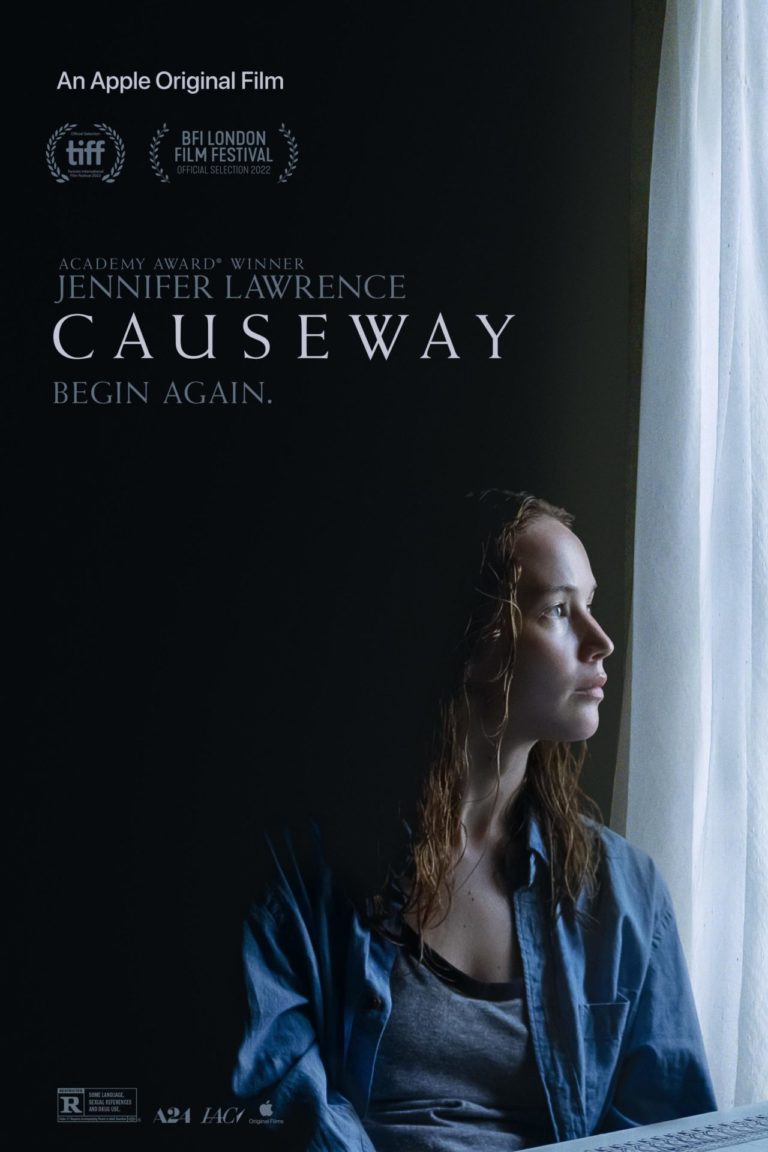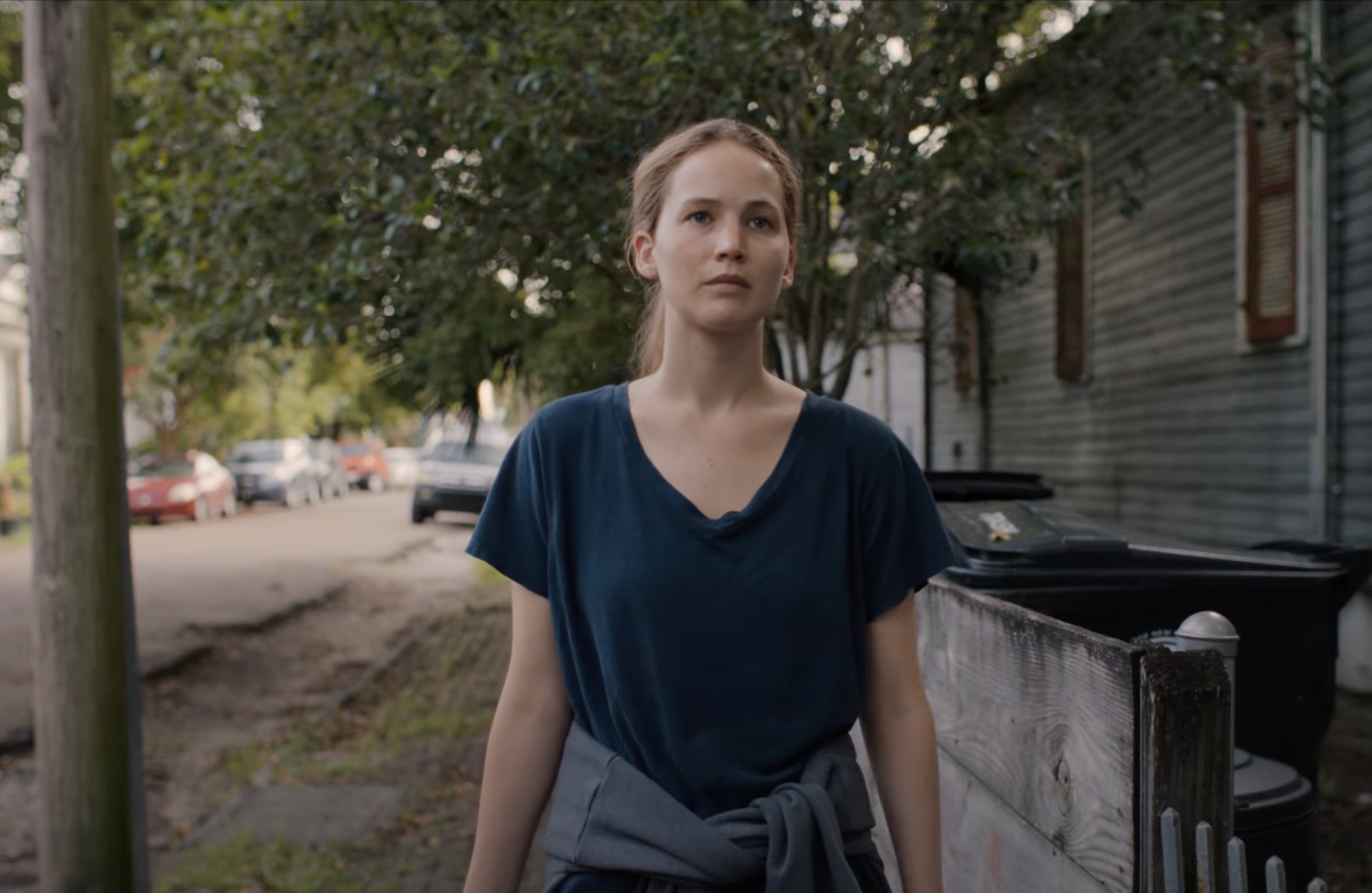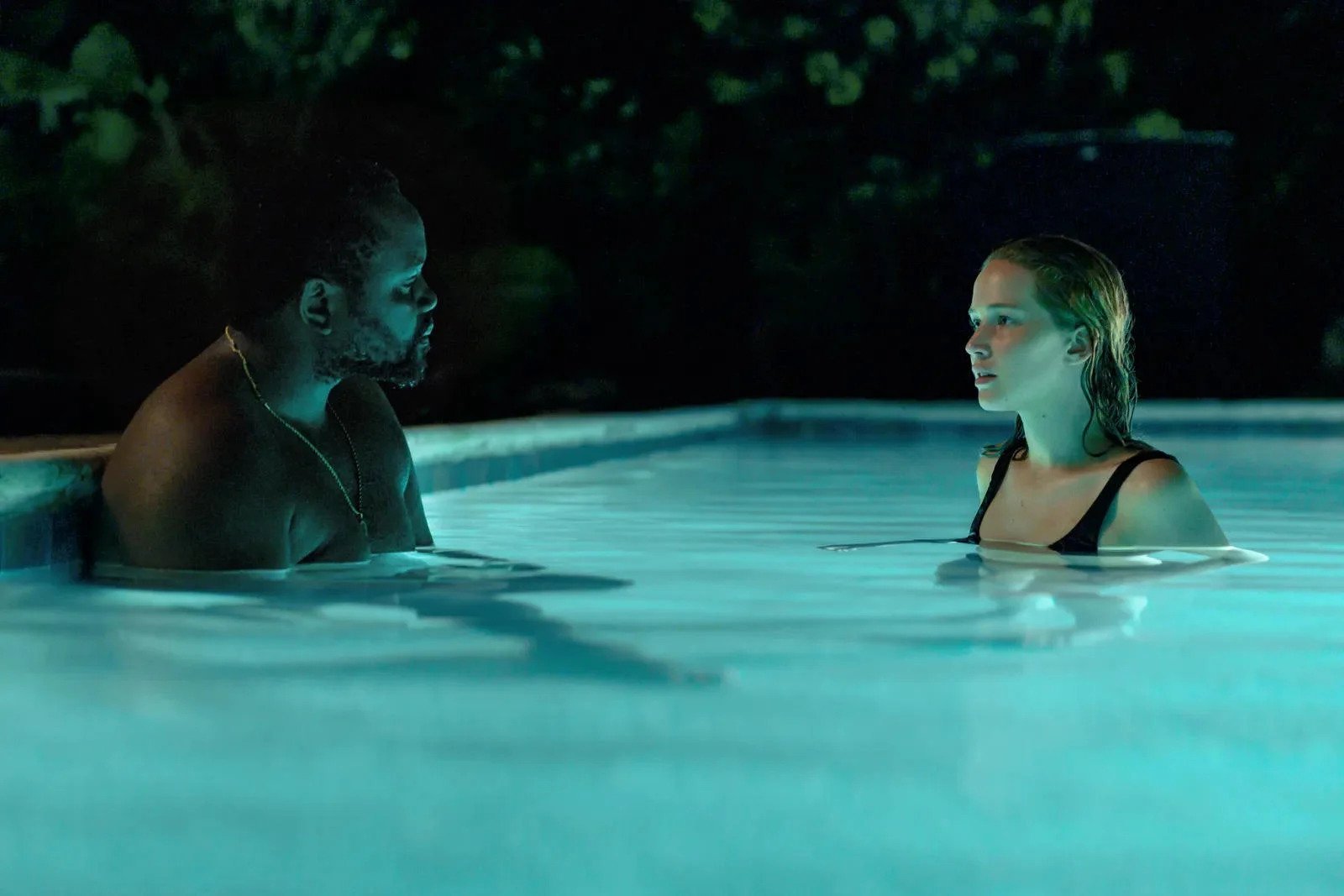
Critically acclaimed theatre director Lila Neugebauer brings together on the big screen Jennifer Lawrence and Brian Tyree Henry in the film Causeway. This psychological drama written by Elizabeth Sanders, Luke Goebel, and Ottessa Moshfegh, follows the friendship and recovery of two individuals affected by trauma. The film, to be released on Apple TV+, had its world premiere at the Toronto International Film Festival, and has been acclaimed at the Rome Film Festival and BFI London Film Festival.
The indie picture unveils the story of military engineer Lynsay (Jennifer Lawrence), who returns to the US after being wounded in Afghanistan. Due to a cerebral haemorrhage she is initially semi-paralysed and needs to go through rehabilitation to claim her life back. Hence her new path begins, finding a temporary job cleaning pools. On her journey to self-discovery Lynsay is accompanied by a new friend: James Aucoin (Brian Tyree Henry), a mechanic who lives in her area. Also his life has been marked by a traumatic experience. Together they will come to the realisation that they must work through the past events that left emotional scars, to be able to move on and achieve their life goals.

Jennifer Lawrence, returns to independent cinema also as a producer in a more introspective role that recalls the film that brought her to stardom, Winter’s Bones. In Causeway the complicity between her and Brian Tyree Henry is impressive, as the characters navigate through the subtext of their turmoils in a quiet and pensive manner. Audiences traverse the chain of causes and effects that led both Lynsay and James to the broken people they’ve become. They discretely wallow in their grief, until the mutual confrontation triggers them to fight for a new future. The film very delicately unravels the sense of guilt and its atonement.
The flow of dialogues between the protagonists is gracefully penned by the team of screenwriters, as we witness two completely different individuals having an immediate and effortless understanding and exchange of perspectives. Lila Neugebauer — with her feature debut — presents post-traumatic-stress-disorder in an unconventional manner. We have a female perspective to begin with, that is eventually paired and juxtaposed with a man’s car accident agony. The encounter between these two afflicted people shines a light on the importance of finding the right family to overcome the daily struggle imposed by a terrifying circumstance that has affected a person’s mental health.

Another core element of the film is the setting, since Lynsay and James are involuntarily swept away by the vitality of the working-class neighbourhood of New Orleans where they both grew up. The rekindling with their origins is crucial for their journey of emotional recovery.
The charm of Causeway is the manner in which it downplays the PTSD genre, yet remaining very profound in its analysis. The film, thusly abides by the paradigm of independent cinema, focusing on all that is implicit. The feelings that are unspoken create greater empathy with spectators than an avalanche of melodramatic moments. As we witness the behaviours of Lynsay and James we can relate to the way they keep their disquietudes for themselves and share only part of their story. The slow process that allows them to open up with utter honesty provides a feeling of responsiveness to the way we all need to come up against our vulnerabilities to truly heal psychologically. Lila Neugebauer demonstrates this through the mundane, as two human beings sympathetically listen to each other, and finally bestow to one another the answers and consolation to the sense of loneliness and delusion that has been haunting them.
Final Grade: B-

